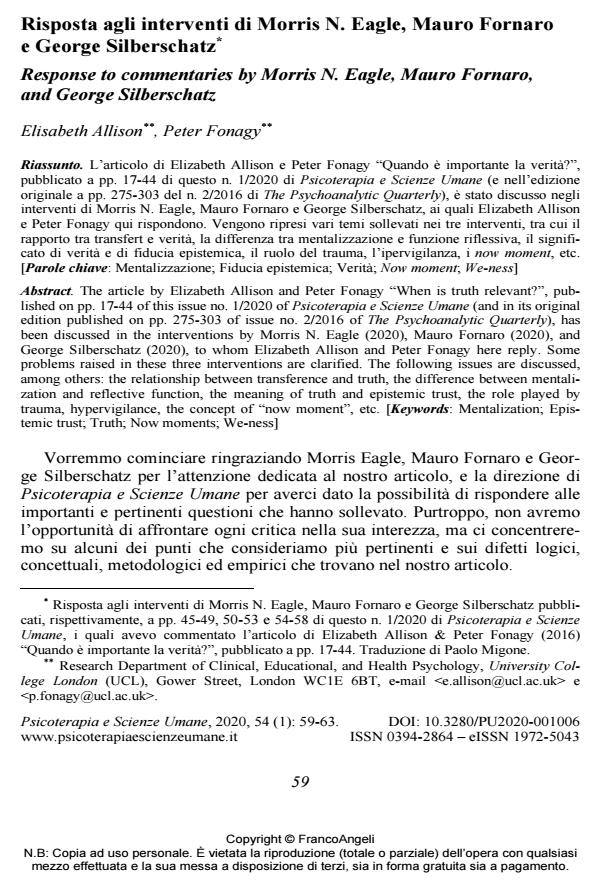Response to commentaries by Morris N. Eagle, Mauro Fornaro, and George Silberschatz
Journal title PSICOTERAPIA E SCIENZE UMANE
Author/s Elisabeth Allison, Peter Fonagy
Publishing Year 2020 Issue 2020/1
Language Italian Pages 6 P. 59-64 File size 77 KB
DOI 10.3280/PU2020-001006
DOI is like a bar code for intellectual property: to have more infomation
click here
Below, you can see the article first page
If you want to buy this article in PDF format, you can do it, following the instructions to buy download credits

FrancoAngeli is member of Publishers International Linking Association, Inc (PILA), a not-for-profit association which run the CrossRef service enabling links to and from online scholarly content.
The article by Elizabeth Allison and Peter Fonagy "When is truth relevant?2, published on pp. 17-44 of this issue no. 1/2020 of Psicoterapia e Scienze Umane (and in its original edition published on pp. 275-303 of issue no. 2/2016 of The Psychoanalytic Quarterly), has been discussed in the interventions by Morris N. Eagle (2020), Mauro Fornaro (2020), and George Silberschatz (2020), to whom Elizabeth Allison and Peter Fonagy here reply. Some problems raised in these three interventions are clarified. The following issues are discussed, among others: the relation-ship between transference and truth, the difference between mentalization and reflective function, the meaning of truth and epistemic trust, the role played by trauma, hypervigilance, the concept of "now moment", etc.
Keywords: Mentalization; Epistemic trust; Truth; Now moments; We-ness
Elisabeth Allison, Peter Fonagy, Risposta agli interventi di Morris N. Eagle, Mauro Fornaro e George Silberschatz in "PSICOTERAPIA E SCIENZE UMANE" 1/2020, pp 59-64, DOI: 10.3280/PU2020-001006